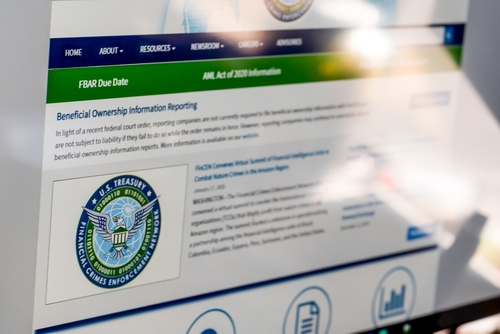
Money Laundering National Risk Assessment Guidance / FATF
On November, 2024, The Financial Action Task Force (FATF), an intergovernmental organization which leads global action to tackle money laundering, terrorist and proliferation financing, proposed new guidance on conducting a National Risk Assessment (NRA) to identify and mitigate money laundering risks, emphasizing a tailored approach based on risk levels.
Understanding risk is a fundamental building block to the risk-based approach. Developing a granular, accurate and up-to-date risk understanding is an ongoing, dynamic process for a country. It is a process that necessitates responding to changing environmental factors, constantly assessing new information and scanning the horizon for risks that may be emerging or materialising. Given the complexity of understanding risk, it is important that a country takes a structured and coherent approach to developing an up-to-date risk understanding.
Once common approach for a country to take in developing a risk understanding is through the conduct of a National Risk Assessment (NRA). An NRA is a process that enables a country to systematically evaluate and address potential money laundering threats and vulnerabilities affecting the country. This structured, evidence-based approach can guide policymakers in tailoring national AML strategies to appropriately mitigate ML risk. Tailoring AML strategies to risk means that areas of higher risk should be subject to enhanced risk mitigation measures, and, importantly, that lower risk areas should also be subjected to simplified or lesser measures.
For more Information click here.
CFPB Finalizes Rule on Federal Oversight of Popular Digital Payment Apps to Protect Personal Data, Reduce Fraud, and Stop Illegal “Debanking” / CFBP
On November 21st, 2024, The American Consumer Financial Protection Bureau (CFPB), published a final rule that brings supervision to Big Tech and other widely used digital payment apps handling over 50 million transactions annually.
The CFBP finalized a rule to supervise the largest nonbank companies offering digital funds transfer and payment wallet apps. The rule will help the CFPB to ensure that these companies – specifically those handling more than 50 million transactions per year – follow federal law just like large banks, credit unions, and other financial institutions already supervised by the CFPB. The CFPB estimates that the most widely used apps covered by the rule collectively process over 13 billion consumer payment transactions annually.
Digital payment apps have become a cornerstone of daily commerce, rivaling traditional payment methods like credit cards and debit cards for both online and in-store purchases. Some of these apps are owned by the world’s largest technology conglomerates. These services have gained particularly strong adoption among middle and lower-income consumers, who now use payment apps for daily spending and funds transfers at rates that rival or exceed the use of cash. What began as a convenient alternative to cash has evolved into a critical financial tool, processing over a trillion dollars in payments between consumers and their friends, families, and businesses.
For more Information click here.
FinCEN Issues Alert on Fraud Schemes Involving Deepfake Media Targeting Financial Institutions / FINCEN
On November 13th, 2024, the U.S. Department of the Treasury’s Financial Crimes Enforcement Network (FinCEN) issued an alert to help financial institutions identify fraud schemes associated with the use of deepfake media created with generative artificial intelligence (GenAI) tools. The alert explains typologies associated with these schemes, provides red flag indicators to assist with identifying and reporting related suspicious activity, and reminds financial institutions of their reporting requirements under the Bank Secrecy Act.
FinCEN has observed an increase in suspicious activity reporting by financial institutions describing the suspected use of deepfake media, particularly the use of fraudulent identity documents to circumvent identity verification and authentication methods. The abuse of GenAI tools contributes to cybercrime and fraud, two of FinCEN’s Anti-Money Laundering/Countering the Financing of Terrorism National Priorities.
For more Information click here.








